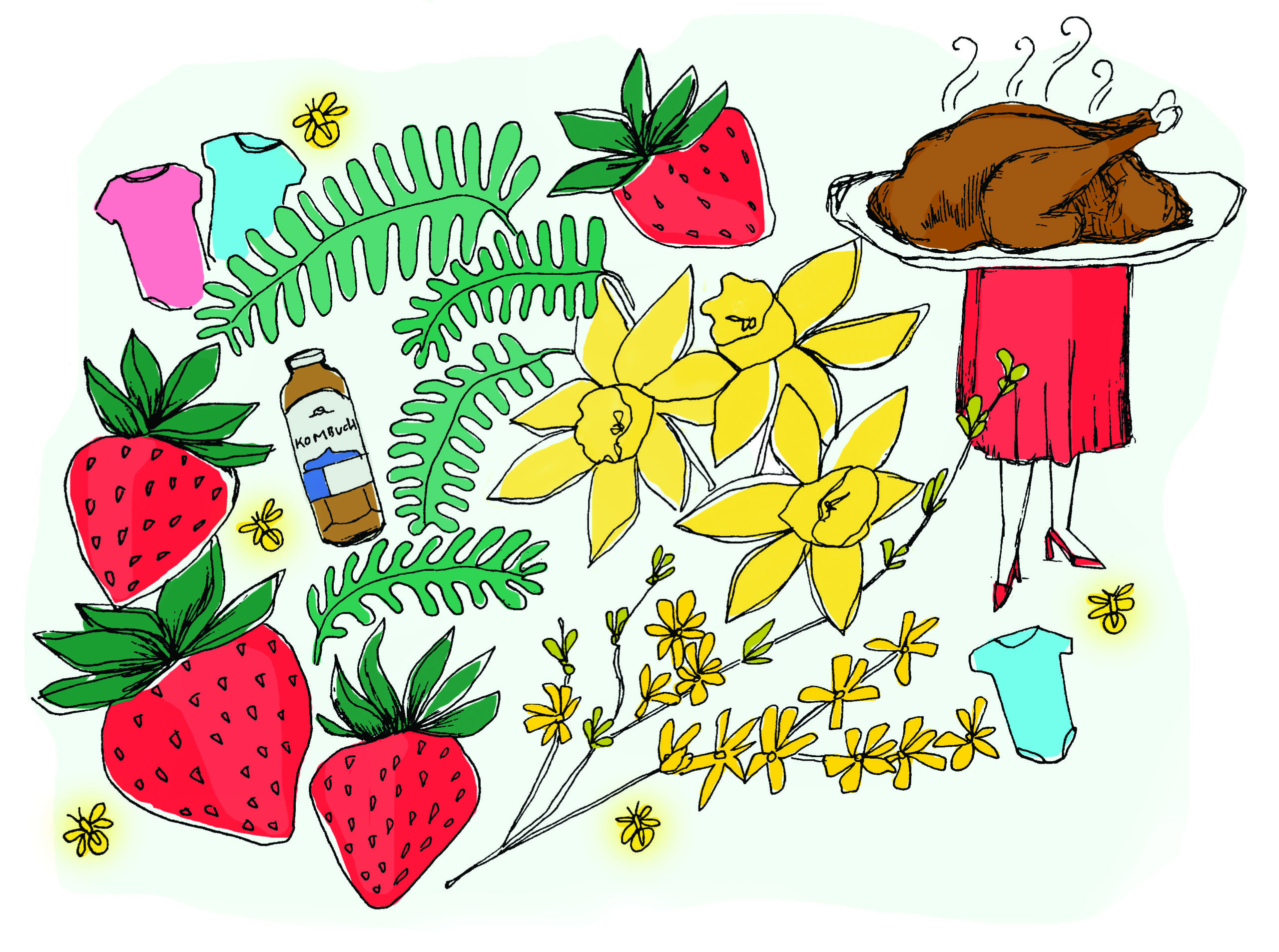I am writing this on a bitingly cold, wet and windy day, where the only true green to be seen is the shocking chartreuse of the moss and the deeper green of the resurrection ferns on the oak trees. But spring is inching its way here. I’ve also got a bud vase of those tiny, intensely fragrant, three-headed narcissi on my desk, and a spray of half-open forsythia on the dinner table. My children have been more restive than usual, and, for the first time all winter, last night, 6-year-old Caspian started talking dreamily about fishing. It’s not here yet, but spring is a’comin.
The best thing about spring is that it’s free. We can’t order it, we can’t buy it, but, in its own sweet time, spring will make its way here, free of charge. And, with its advent, the little world of my town, Water Valley, will remember that there are some truly good things that money can’t buy. People stand up straighter and move easier in the spring — no need to hunch against the wind or the cold. The first touch of sun on bare arms is a blessing as tangible as a Pyrex dish full of homemade macaroni and cheese. Food tastes better, the streets fill up with kids on bikes and the ball field turns its lights on and starts selling hotdogs and sending tinny speaker announcements to compete with the peepers in the warm-cool evenings.
Maybe a small-town merchant shouldn’t say this, but I’m a fan of things money can’t buy. Standing behind a counter, watching people decide how to spend money gives me a unique perspective on goods sold and services rendered. In my personal opinion, folks are crazy about money. Did you know it’s easier to sell a $4 bottled drink of kombucha, a fermented kind of health-tea that nine out of 10 folks won’t even like, than to sell a $3 pint of strawberries picked that morning and taste like sun-warmed strawberry jam, except better? (A quick word to grocery shoppers: if ever you have the chance to buy anything that was picked that morning, do it.) I’m going to go ahead and say that people, in general, don’t know how to spend their money in a way that will maximize their happiness. That’s why the weather is so great. Number one, it gives me something to talk about with most of my customers. And, number two, when it’s good, it’s a blessing that costs us nothing, a blessing we are powerless to refuse.
That brings me to roasted turkey and church ladies. Church ladies are the living embodiment of blessings you can’t refuse. When I was a whippersnapper of 25, I knew everything about everything. And, thus, becoming a mother didn’t daunt me in the slightest. I’d read the books. I’d surfed the net. I had a beautiful nursery with homemade curtains, a dresser with tiny, immaculately folded onesies and a ready-to-help husband who had two weeks of paternity leave. What more could I need?
Well. Three days after Annaliese’s entry into the world, both Kagan and I were ready to throw in the towel. Delivery, all 25 hours of it, hadn’t gone as planned. The baby slept six hours the first night and then seemingly never shut her eyes again. She cried a lot. I felt depleted and wrung out and, when the doorbell rang, I was wearing stretched-out yoga pants and a pajama top that had seen better days. To tell the truth, I mostly resembled a vampire with jaundice.
Miz Cecil didn’t blink an eye. She just sailed into my kitchen, kissed the baby’s head and placed a fully roasted turkey on my counter. Then, she left. Bear in mind this was a woman I barely knew. And it felt as though she’d saved my life.
A few weeks later, we were, despite continuing to sleep less than I ever thought humanly possible, still alive. And Kagan and I had a meeting we both desperately needed to attend, a newborn who cried at the drop of a hat and absolutely no family in the town where we’d lived for a scant year. Another church lady came to our rescue: Miz Dot, who’d raised a family of her own and told us she could handle our little girl for an hour or even a night with no problem at all.
We were dubious, but we were desperate, so we took her at her word. We went to the meeting — drove too fast back to her house, about an hour and three minutes after we’d dropped her off, expecting to find Miz Dot with her hair on end and the house filled with screams.
Instead, she was sitting on her couch with the TV on low, Annaliese peacefully asleep in her arms. “She was no problem at all,” she said. To this day, Miz Dot and Annaliese have a special fondness for each other.
I think we should all be on the hunt for moments of grace in our lives. Sometimes, these moments can be purchased (remember? Strawberries in spring?), but mostly, they just appear. It’s easy to spot them this time of year — the wild plums in flower on the side of the road, the sound of kids playing into the dusk as the first fireflies appear, the fresh air sweeping through the screen doors. And the outreach of a hand, just when we need one.

